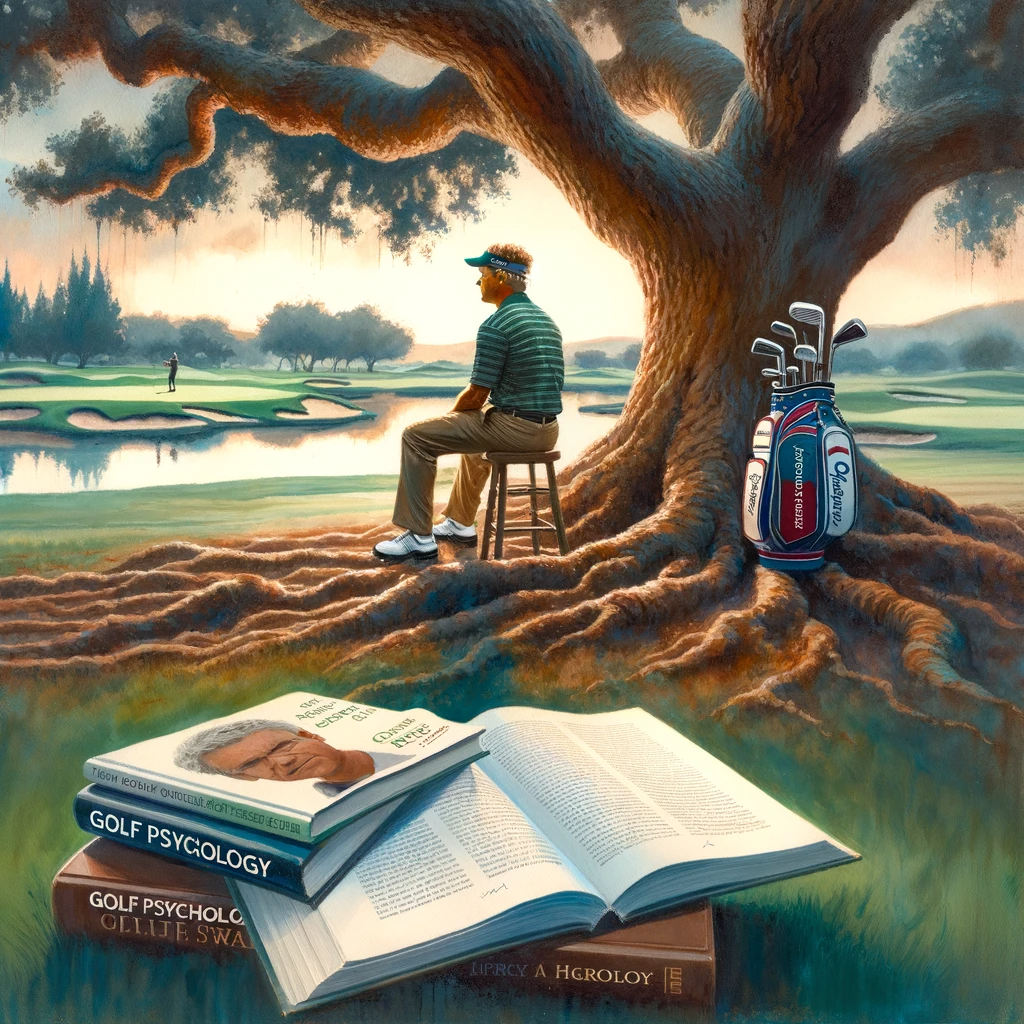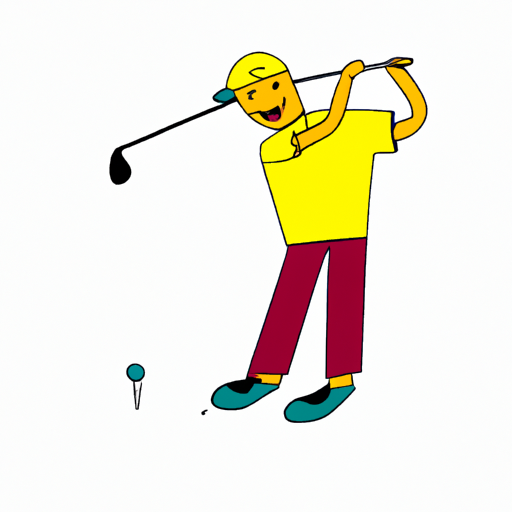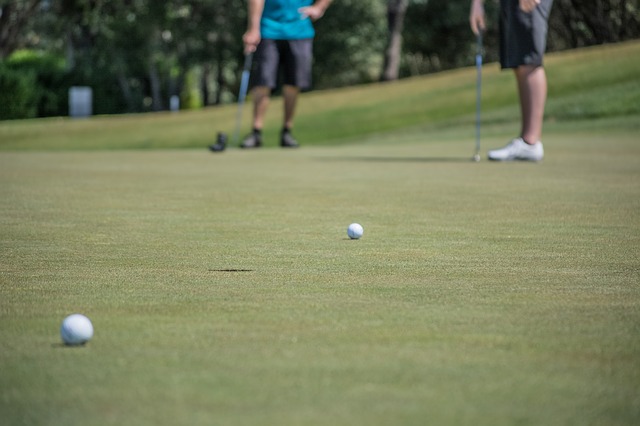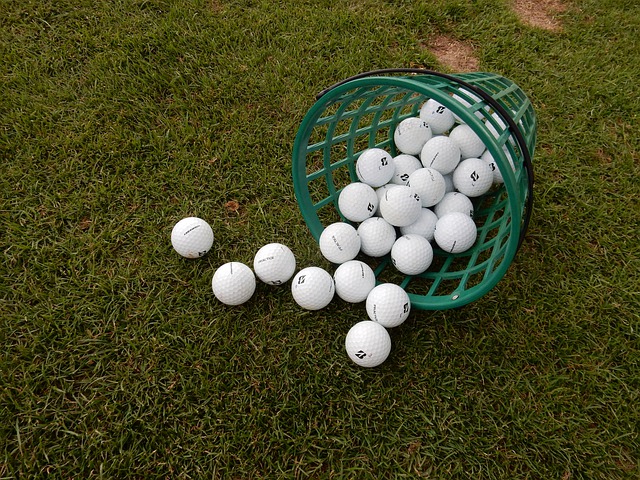- Home
- Best golf books
- Best Golf Psychology Books
Best Golf Psychology Books: Elevate Your Game
As a weekend golfer, you know the game is as much about mental prowess as physical skill. "Best Golf Psychology Books: Elevate Your Game" is your gateway to mastering the mental aspects of golf. This article isn't just a list of books; it's a journey into the heart of golf psychology, tailored to your needs and interests. Whether you're struggling with focus, consistency, or just looking to improve your game, these books offer practical, real-world strategies. Don't miss the key takeaways and FAQ section at the bottom, especially if you're short on time. Get ready to transform your approach to golf with insights from the best in the field!
As a weekend golfer, I've always been fascinated by the mental aspect of golf. It's not just about the swing or the equipment; it's about what goes on in your head. That's where golf psychology books come in, offering a treasure trove of insights and strategies to enhance your game. In this guide, I'll take you through a journey of discovering the best golf psychology books, tailored specifically for players like us who want to enjoy and improve our game during those precious weekend rounds.
Golf can be as challenging mentally as it is physically. Many golfers, including myself, often struggle with the psychological pressures of the game, whether it's dealing with a bad shot or maintaining focus throughout the round.
This mental struggle can lead to frustration, decreased enjoyment, and even a reluctance to play. I've experienced this firsthand, feeling the weight of mental barriers holding back my performance and enjoyment of the game.
Thankfully, there's a wealth of knowledge available in golf psychology books. These books provide invaluable insights into the mental side of golf, offering techniques and strategies to overcome mental hurdles and improve our overall game. In this guide, I'll share with you the books that have made a significant impact on my mental approach to golf, helping me to play better and enjoy the game more.
Understanding Golf Psychology: The Key to Enhancing Your Game
Golf, at its core, is a game of precision and patience, but what many weekend warriors like myself often overlook is the immense role played by the mind. Understanding golf psychology isn't just about getting an edge; it's about transforming how we experience the game.
The Essence of Golf Psychology
Golf psychology delves into the mental aspects that influence our performance on the course. It's fascinating how a game so physical can be so profoundly affected by our mental state. From managing stress and anxiety to maintaining focus for each shot, the mental challenges are as demanding as the physical ones.
Mental Strength: The Unseen Muscle in Golf
I've come to realize that mental strength in golf is like an unseen muscle. It needs training and nurturing just like our swing. There have been rounds where my mind was cluttered, and no matter how well I struck the ball at the range, my game fell apart on the course. That's when I turned to golf psychology books. They became my mental gym.
Transformative Power of Golf Psychology Books
Reading books was an eye-opener. They offered strategies for everything from calming pre-tee jitters to recovering from a bad hole. I learned about visualization techniques, how to set realistic goals, and the importance of a pre-shot routine. But more importantly, books taught me to enjoy the game, regardless of the score.
I remember a particular round where I was struggling with my swing. Frustrated, I recalled a chapter from one of my favorite golf psychology books about resetting your mindset. I took a deep breath, visualized a successful shot, and approached the ball with a clear mind. The result was one of the best shots of the day. It was a small victory, but it showcased the power of a positive mental approach.
As a weekend golfer, embracing the principles of golf psychology has been transformative. It's not just about lowering scores; it's about developing a healthier, more enjoyable relationship with the game. For anyone looking to enhance their golf experience, diving into golf psychology books is a journey worth taking.
Top Golf Psychology Books for Weekend Golfers
As a weekend golfer, I've always been on the lookout for resources to improve my game. While practice and technique are crucial, I've found that the mental aspect of golf is equally important. That's where golf psychology books come in. They offer insights and strategies to help golfers like me enhance our mental game, leading to better performance and more enjoyment on the course.
1. "Golf is Not a Game of Perfect" by Dr. Bob Rotella
This book is a game-changer. Dr. Rotella, a renowned sports psychologist, delves into the importance of confidence, concentration, and composure. His advice is practical and easy to apply, making it ideal for weekend golfers. The anecdotes from professional golfers add an inspiring touch.
2. "Zen Golf: Mastering the Mental Game" by Dr. Joseph Parent
Blending the principles of Zen with golf psychology, this book offers a unique approach to mastering the mental game. It's about finding the balance between focus and relaxation, which is crucial for golfers at any level. The mindfulness techniques discussed are not just beneficial for golf but for everyday life as well.
3. "The Inner Game of Golf" by W. Timothy Gallwey
Gallwey's book focuses on overcoming self-doubt and anxiety, which are common hurdles for many golfers. His approach to the mental game is about letting go of the ego and playing with a clear mind. It's a profound read that goes beyond golf, touching on personal growth and self-awareness.
4. "Fearless Golf: Conquering the Mental Game" by Dr. Gio Valiante
This book addresses one of the biggest challenges in golf: fear. Dr. Valiante's insights into managing fear and developing a positive mindset are invaluable. His strategies are backed by research and real-world examples, making them highly effective for amateur golfers.
5. "Every Shot Must Have a Purpose" by Pia Nilsson and Lynn Marriott
Nilsson and Marriott offer a holistic approach to golf psychology. Their focus on purposeful practice and mental preparation is eye-opening. The book is filled with practical exercises that can be easily incorporated into a weekend golfer's routine.
Reading these books has been a transformative experience for me. They've not only improved my game but also my enjoyment of golf. Each book offers a unique perspective, yet they all converge on the same truth: the mind is as important as the body in golf.
For weekend golfers looking to enhance their mental game, these books are a treasure trove of wisdom. They provide practical advice, mental strategies, and inspirational stories that can help any golfer overcome mental barriers and enjoy the game to its fullest.
Applying Golf Psychology: Practical Tips and Techniques
As a weekend golfer, I've always been intrigued by the mental aspect of the game. It's fascinating how our mindset can significantly impact our performance on the course. Over time, I've gathered various practical tips and techniques from golf psychology books and my own experiences. These strategies have helped me improve my focus, manage stress, and ultimately enjoy the game more.
1. Establish a Pre-Shot Routine
A consistent pre-shot routine helps in calming nerves and focusing on the shot at hand. It can be as simple as a deep breath, a visualization of the shot, and a couple of practice swings. This routine has become a ritual for me, providing a sense of control and confidence before each shot.
2. Practice Mindfulness and Visualization
Mindfulness helps in staying present during the game, avoiding distractions from past mistakes or future worries. I often practice mindfulness exercises on and off the course. Visualization, on the other hand, is about mentally rehearsing shots. Before a challenging shot, I visualize the ball's trajectory and landing spot, which boosts my confidence.
3. Embrace Positive Self-Talk
The way we talk to ourselves on the course can make a huge difference. I've learned to replace negative thoughts with positive affirmations. Instead of thinking, "Don't hit it into the water," I focus on where I want the ball to go. Positive self-talk reinforces confidence and reduces anxiety.
4. Set Realistic Goals
Setting achievable goals for each round or practice session has been a game-changer for me. These goals aren't always about scoring but can be about improving a particular aspect of my game, like putting or driving accuracy. Achieving these small goals provides a sense of accomplishment and motivation.
5. Learn to Manage Stress and Anxiety
Golf can be stressful, especially in competitive situations. I've adopted various techniques to manage stress, such as deep breathing exercises and focusing on the process rather than the outcome. Acknowledging that some level of anxiety is normal in golf has also helped me accept and work through it.
6. Keep a Golf Journal
Maintaining a golf journal has been beneficial for tracking progress and reflecting on my mental state during different rounds. I note down what worked well, what didn't, and how I felt during the game. This reflection helps in identifying patterns and areas for improvement.
I remember a particular round where I was struggling with my putting. Instead of getting frustrated, I focused on my breathing and reminded myself of the practice I had put in. This shift in mindset helped me regain composure and finish the round strong.
Applying these golf psychology tips and techniques has not only improved my game but also my overall experience on the course. They are practical, easy to implement, and can make a significant difference in how we approach and enjoy the game.
 Master the mental game of golf with these essential psychology reads.
Master the mental game of golf with these essential psychology reads.Evolving Your Game: Advanced Concepts in Golf Psychology
As someone who has spent countless weekends on the golf course, I've come to realize that mastering golf isn't just about perfecting your swing or choosing the right club. It's also about understanding and applying advanced concepts in golf psychology. These concepts have not only refined my skills but also deepened my appreciation for the game.
1. The Zone of Optimal Performance
One of the most fascinating concepts I've encountered is the 'Zone of Optimal Performance.' This is a mental state where you're completely absorbed in the game, with heightened focus and confidence. Achieving this state requires a balance of arousal and relaxation. I've found that maintaining a routine and focusing on the process, rather than the outcome, helps me get into this zone more consistently.
2. Emotional Regulation on the Course
Golf can be an emotional rollercoaster. Learning to regulate emotions, especially after a bad shot, is crucial. I practice techniques like deep breathing and positive self-talk to keep my emotions in check. This emotional regulation not only helps in maintaining a steady performance but also in enjoying the game regardless of the score.
3. Cognitive Flexibility in Strategy
Adapting to the ever-changing conditions of a golf course requires cognitive flexibility. This means being open to changing your strategy mid-game. I've learned to assess my performance and the course conditions continuously, allowing me to adapt my strategy as needed. This flexibility has often turned potentially bad rounds into successful ones.
4. Developing Mental Toughness
Mental toughness in golf is about resilience and the ability to bounce back from setbacks. I've worked on developing a growth mindset, viewing challenges as opportunities to learn and improve. This approach has helped me stay motivated and persistent, even when the game gets tough.
5. Harnessing the Power of Imagery
Advanced imagery techniques go beyond basic visualization. It involves using all senses to create a detailed mental image of the desired outcome. I practice this by visualizing not just the shot but also the sounds, the feel of the club, and the environment. This comprehensive imagery enhances my focus and performance.
There was a tournament where I was trailing by a few strokes. Instead of panicking, I focused on staying in the present and visualized each shot vividly. This mental approach helped me stay calm and perform at my best, eventually leading to a strong comeback.
Understanding and applying these advanced golf psychology concepts has been a game-changer for me. It's not just about playing better golf; it's about evolving as a player and enjoying the game on a deeper level. These concepts are tools that any golfer, regardless of their skill level, can use to enhance their game and their enjoyment of this wonderful sport.
Key Takeaways: Unlocking Your Golf Potential with the Best Psychology Books
Golf is more than a physical sport; it's a mental challenge. The right psychology books can transform your approach to the game. Here’s a summary of what we’ve covered, with actionable steps to enhance your golfing journey:
1. Understanding the Mental Game
- Read books that explain the psychological aspects of golf.
- Implement techniques like visualization and positive self-talk.
2. Applying Practical Tips
- Seek books with actionable advice.
- Practice techniques like breathing exercises and focus drills.
3. Evolving with Advanced Concepts
- Explore books that delve into deeper psychological strategies.
- Apply concepts like the Zone of Optimal Performance and cognitive flexibility.
Action Steps:
- 📚 Explore Books: Start by exploring our recommended list of golf psychology books.
- 🔄 Practice and Apply: Implement one new technique each week during your practice sessions.
- 📝 Reflect and Adapt: Keep a golf journal to track your mental strategies and their effectiveness.
- 🤝 Join the Golfeaser Community: Share your experiences and learn from fellow golf enthusiasts.
- 📩 Stay Informed: Sign up for the Golfeaser newsletter for the latest tips, stories, and book recommendations.
Engage with Golfeaser
- Share Your Story: Have these books transformed your game? Share your journey with us!
- Live by the Golfeaser Manifesto: Embrace the mental aspect of golf and continuously seek improvement, both on and off the course.
Final Thoughts
Golf is a journey of continuous learning and improvement, and the right psychology books can be your guide. By understanding and applying the mental strategies discussed, you can unlock a new level of performance and enjoyment in your game.
What's Your Next Step?
Have you found a golf psychology book that resonates with you? How do you plan to integrate its teachings into your game? Join the conversation and let us know in the Golfeaser community!
Comprehensive FAQ on Best Golf Psychology Books
What are the top golf psychology books recommended for improving mental game?
What are the top golf psychology books recommended for improving mental game?
The most recommended books for enhancing your golf mental game include "The Inner Game of Golf" by W. Timothy Gallwey, "Simplicity: The Fluid Motion Factor Program" by Steven Yellin, "Golf is Not a Game of Perfect" by Dr. Bob Rotella, "Fearless Golf: Conquering the Mental Game" by Dr. Gio Valiante, and "Zen Golf: Mastering the Mental Game" by Dr. Joseph Parent. These books offer various strategies and insights into improving focus, confidence, and mental resilience in golf.
How can "The Inner Game of Golf" help in my golfing journey?
How can "The Inner Game of Golf" help in my golfing journey?
"The Inner Game of Golf" by W. Timothy Gallwey is renowned for its strategies to achieve potential in both competition and everyday life. It focuses on defeating mental demons, finding clarity under pressure, building confidence, and employing the art of "relaxed concentration" to improve your swing and overall game.
What unique approach does "Simplicity: The Fluid Motion Factor Program" offer?
What unique approach does "Simplicity: The Fluid Motion Factor Program" offer?
Steven Yellin's "Simplicity" introduces the concept of the fluid motion factor, a neurophysiological process that helps golfers access their best swings and make self-corrections. This book is a revolutionary guide for golfers to consistently access this process and enter the zone of consistent golf.
Can "Golf is Not a Game of Perfect" improve my mental approach to golf?
Can "Golf is Not a Game of Perfect" improve my mental approach to golf?
Yes, "Golf is Not a Game of Perfect" by Dr. Bob Rotella is highly effective in creating a positive attitude and mindset about all aspects of a golfer's game. It focuses on mental preparation, competition, and developing an approach that helps golfers improve their mental game and enjoy playing more.
What are the key teachings of "Fearless Golf: Conquering the Mental Game"?
What are the key teachings of "Fearless Golf: Conquering the Mental Game"?
Dr. Gio Valiante's "Fearless Golf" delves into overcoming the fear that can dominate a golfer's game. It includes strategies for conquering fear, developing commitment to mastery, and specific drills for confidence and performance improvement.
How does "Zen Golf: Mastering the Mental Game" differ from other golf psychology books?
How does "Zen Golf: Mastering the Mental Game" differ from other golf psychology books?
"Zen Golf" by Dr. Joseph Parent combines insights and stories from Zen tradition with golf psychology. It focuses on achieving clear thought, ultimate focus, and playing in the moment for each shot, using a unique PAR Approach (Preparation, Action, Response to Results) for mental game mastery.
What are the best books for mental toughness in golf?
What are the best books for mental toughness in golf?
Books like "Golf is Not a Game of Perfect" and "Fearless Golf: Conquering the Mental Game" are often recommended for developing mental toughness in golf. They provide insights and techniques for building resilience, focus, and a positive mindset on the course.
How can golf psychology books improve my game?
How can golf psychology books improve my game?
Golf psychology books offer strategies for mental preparation, focus, and overcoming challenges on the course. They help in building confidence, managing emotions, and maintaining concentration, which are crucial for improving overall golf performance.
Are there specific golf psychology books for beginners?
Are there specific golf psychology books for beginners?
Yes, there are golf psychology books tailored for beginners, such as "Zen Golf: Mastering the Mental Game," which provides simple and effective methods for beginners to develop their mental game alongside their physical skills.
How do mental strategies in golf differ for competitive vs. recreational play?
How do mental strategies in golf differ for competitive vs. recreational play?
Mental strategies in golf for competitive play often focus more on handling pressure, maintaining focus during tournaments, and strategic thinking. In contrast, recreational play strategies might emphasize enjoyment, relaxation, and social aspects of the game.
Can reading golf psychology books replace professional coaching?
Can reading golf psychology books replace professional coaching?
While golf psychology books provide valuable insights and strategies, they are not a complete replacement for professional coaching. They can complement coaching by offering additional perspectives and mental techniques.
What role does mindfulness play in golf according to these books?
What role does mindfulness play in golf according to these books?
Mindfulness plays a significant role in golf psychology, as highlighted in books like "Zen Golf." It involves staying present, focused, and calm, which helps in making better decisions, improving concentration, and reducing stress on the course.





